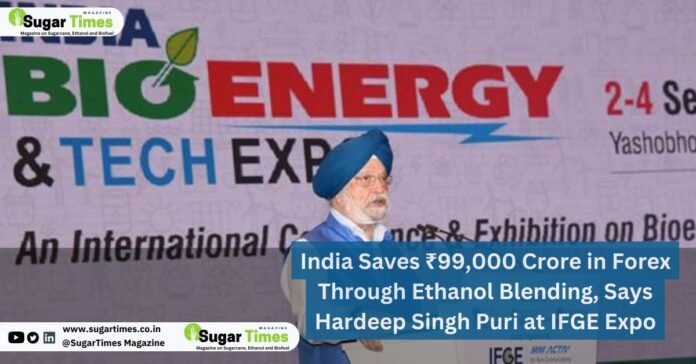Union Petroleum Minister Hardeep Singh Puri, speaking at the IFGE India Bio-Energy & Tech Expo, highlighted the monumental success of India’s ethanol blending program, which has saved the country ₹99,014 crore in foreign exchange since its inception in 2014. The minister emphasized that the program, which aims to blend ethanol with automotive fuels, has been instrumental in reducing the nation’s crude oil imports and lowering carbon emissions.
Puri shared that the ethanol blending percentage has increased significantly from 1.53% in 2014 to 15% in 2024, with plans to reach 20% by 2025. This initiative has allowed India to substitute 17.3 million metric tons of crude oil, contributing to both economic and environmental sustainability. The reduction in carbon emissions by 51.9 million metric tons over the past decade underscores the environmental benefits of this program, aligning with India’s broader goals of reducing its carbon footprint and promoting green energy.
The minister also highlighted the financial impact of the program, noting that oil marketing companies have paid ₹1.45 trillion to distillers since 2014, with farmers receiving ₹87,558 crore during the same period. This financial support has not only strengthened the ethanol production ecosystem but also provided significant economic benefits to farmers, furthering the government’s commitment to transforming them from food providers to energy providers.
Looking ahead, Puri announced that the government has resumed the supply of rice from the Food Corporation of India to ethanol distilleries and is set to begin supplying sugarcane juice and syrup to distilleries from November 2024. These steps are expected to further boost ethanol production, ensuring feedstock security and price stability. The minister’s address at the IFGE Expo reinforced India’s commitment to biofuels as a cornerstone of its energy strategy, driving the country towards a more sustainable and self-reliant future.





